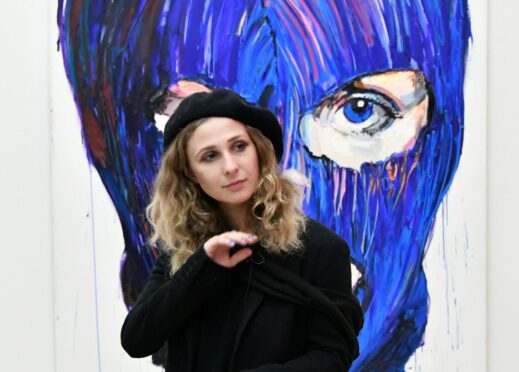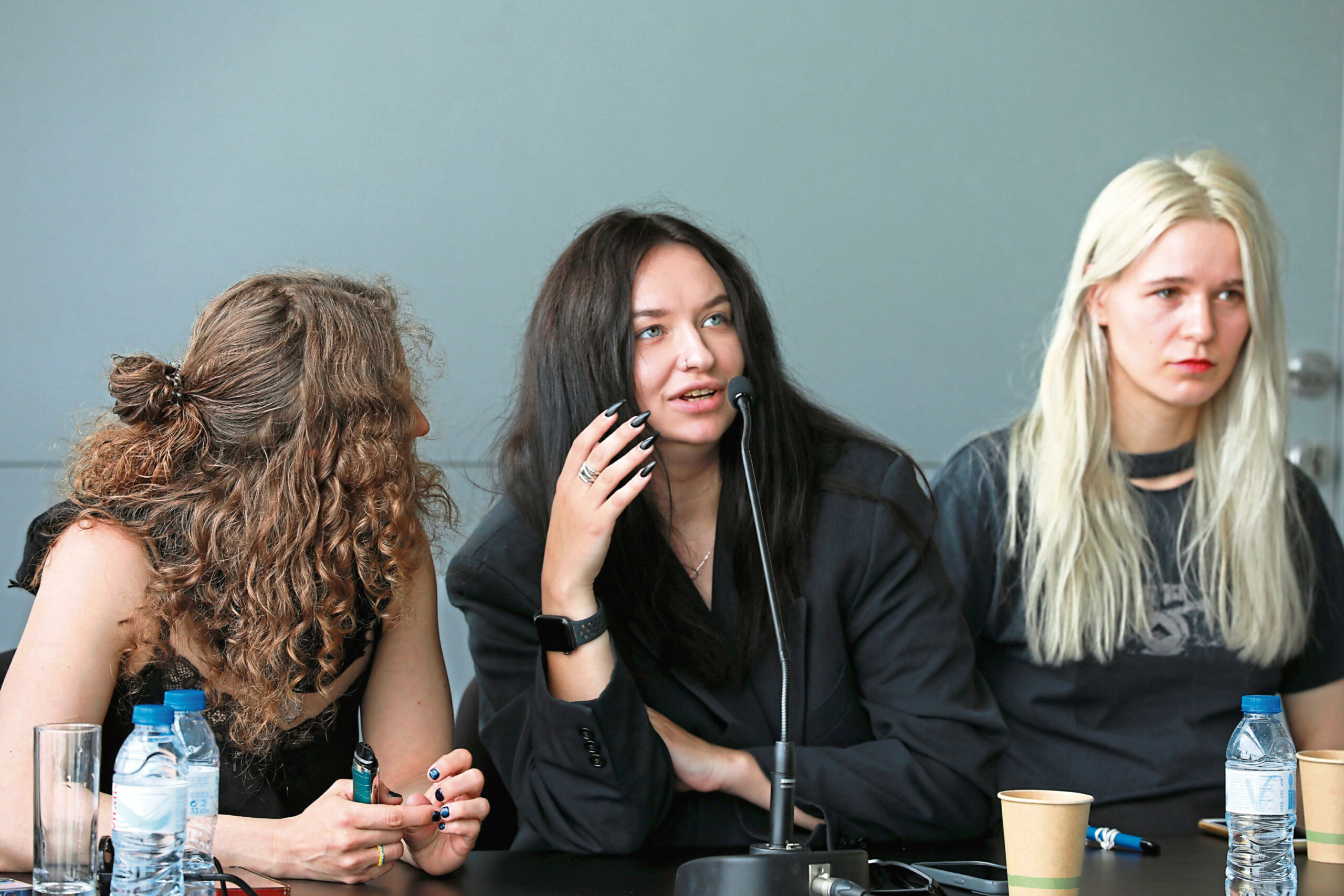
They bravely delivered their damning verdict on Vladimir Putin when too many at home and abroad remained silent.
Today, as they tour Europe with a protest show against the Russian president’s catastrophic invasion of Ukraine, punk rock activists Pussy Riot dream of the day he is judged in The Hague.
The Russian group has, over the past decade, drawn the eyes of the world to the Kremlin’s actions with their guerrilla performances and balaclava-wearing protests.
As dissenting action has become increasingly dangerous most members have now moved abroad, with one member even escaping house arrest to leave Russia.
Ahead of performances in Glasgow and Edinburgh, founding member Diana Burkot said: “It’s an anti-war tour against what Putin started in Ukraine. We use the stage for our activism. It’s the most important thing that we can do right now. It’s our mission.
“In the beginning, Pussy Riot was always about feminism and against Putin’s regime. This is not Russian people’s war, it’s his regime’s war. Many Russian people didn’t want this war but they’re afraid to speak freely.”
Pussy Riot’s anti-Putin campaign has been running for over a decade. They gained global notoriety when five members staged a performance inside Moscow’s Cathedral of Christ the Saviour in February 2012 in protest at the Orthodox Church leaders’ support for the Russian president during his election campaign.
It resulted in the imprisonment of members Maria Alyokhina, Nadezhda Tolokonnikova, and Ekaterina Samutsevich.
By speaking out, Pussy Riot, inspired by the punk movement, earned support from the likes of Paul McCartney, Madonna and Sting but have also seen members arrested countless times, some incarcerated.
Their actions in opposing Putin’s government appear even more relevant and courageous a decade on.
Taso Pletner, who joined the group in 2021, said: “Russia isn’t silent now, it keeps protesting every day. A lot of people are now in prison, not professional activists, just people who are against the war and wouldn’t be silenced. We hear a lot of awful stories about people.
“It’s very dangerous in Russia, but in the UK it’s not so dangerous. You have a voice, you have freedom and our message is not to be indifferent. Go to the streets, do your own actions and push your politicians.”
Pletner joined the group having grown up idolising their direct action, particularly as women in a country where very few female voices are around the top table.
“They were the first loud women’s voice and I wanted to fight for feminist and LQBTQ+ rights,” they said. “For me, all my life, they were icons. I saw that women could do something. I do what I do because when I was a teenager I saw their action.”
Burkot and Pletner are touring Europe alongside Alyokhina and Olga Borisova. Alyokhina spent two years in prison for her part in the “punk prayer” of 2012 and the show, produced by long-term supporter Alexander Cheparukhin, is based on her book, Riot Days.
It tells the story of how this group of artists, activists and anarchists came together and how things have got worse in Russia since they formed. The show serves as a call to action in support of Ukraine, with the group critical of Europe’s weak response when Crimea was annexed in 2014 and the fact many countries are still buying Russian oil and gas.
Burkot said: “We all understand that if we were in Russia we’d be in jail. We can’t choose where we were born. None of us wanted to leave, this is our country and culture and we hope to go back home. We have a dream and hope that Putin will be judged in The Hague.
“People everywhere we go are really supportive and interested. We’re really happy to have such warm support everywhere. We just try to do our best.
Pletner added: “I never thought about leaving Russia. When I was a teenager a lot of my friends went to study abroad but I’d never been abroad. It’s my world, it’s my language, it’s my culture.
“We’ve lost our home, maybe part of our career, but we can’t think about this because we are safe now. A lot of people in Russia don’t have this privilege. We can help Ukraine. It’s not easy but a lot of our friends in Ukraine have lost friends, family, children.”
Pussy Riot play Edinburgh’s Summerhall on Tuesday (summerhall.co.uk/sh-event/pussy-riot) and The Great Western Festival in Glasgow on Saturday (tgwfest.com)

Enjoy the convenience of having The Sunday Post delivered as a digital ePaper straight to your smartphone, tablet or computer.
Subscribe for only £5.49 a month and enjoy all the benefits of the printed paper as a digital replica.
Subscribe © ESTELA SILVA/EPA-EFE/Shutterstoc
© ESTELA SILVA/EPA-EFE/Shutterstoc